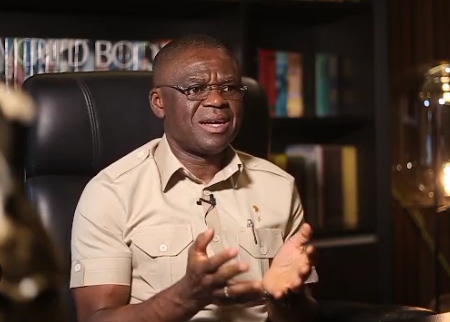The Director-General of the National Institute of Sports (NIS), Comrade Philip Shaibu, has declared that the decline of the NIS is the root cause of Nigeria’s dwindling sports fortunes. He has vowed to return the institution to its former glory with a sweeping 10-year revitalization plan.
“The National Institute of Sports is the engine room of sports. Not only in Nigeria, [but] in Africa. With the facility that is there, no other facility [compares],” Shaibu said during a media chat in Abuja on Wednesday.
He lamented the sorry state of the institute, stating that even foreigners acknowledge the world-class infrastructure that now lies in ruin.
“A Tunisian came around the other day and was telling me what we have there, they don’t have it in their places… But unfortunately, these facilities were run down.”
According to Shaibu, President Bola Ahmed Tinubu has given his full backing to the reform process, signaling a renewed national commitment to sports as a tool for development and unity.
“You can see that sport is awoken by the President… No past leader apart from those in the olden days have put the same premium on sport.”
Shaibu revealed that within three weeks of his appointment, he drafted a 2025–2035 strategic roadmap, now under review by a 32-member committee of top sports technocrats and stakeholders. These include sports legends such as Yusuf Alli, Mary Onyali, and Professor Fafunwa, as well as marketing and branding experts.
“I do not want to subject the revamping and restarting of the NIS to my intellect alone… This document is like restarting the NIS afresh.”
He emphasized that the NIS must reclaim its core mandate: training elite athletes, coaches, managers, medics, and administrators for Nigeria’s sports ecosystem.
“The Odegbami team that won the 1980 AFCON were trained by the NIS… That is the responsibility of the NIS.”
Highlighting the broader national implications, Shaibu stressed that a functional NIS could end Nigeria’s reliance on permutations to qualify for global tournaments.
“If NIS works, Nigeria will not need calculators again… We will not need that again because NIS is working.”
To ensure sustainability, Shaibu unveiled a hybrid public-private financing model. He cited the success of Edo State, where government funding for Bendel Insurance FC and Edo Queens was eventually replaced by private sponsorship and merchandise sales.
“At the beginning, government funding was 100%. Gradually, it started dropping to 40%. And [the] private sector became 60%. That is the only way you can sustain sport.”
He also underscored the role of corporate support in sports development, referencing Zenith Bank’s long-standing support for Nigerian women’s basketball.
“If they were not helping us in the end, we wouldn’t be celebrating the D’Tigress today.”
Shaibu said the new NIS strategy will push Nigeria to become the sports tourism capital of Africa, creating jobs and helping to tackle insecurity through youth engagement and economic stimulation.
“When we do that, the direct and indirect jobs we create will help reduce unemployment, which indirectly will also reduce insecurity. To reduce insecurity is a collective fight.”
With strong backing from the Federal Government, the National Sports Commission, all 37 sports federations, and seasoned industry professionals, Shaibu is optimistic that Nigeria is poised for a true sports renaissance.
“It’s not Philip Shaibu now. It is the National Sports Commission, National Institute for Sport, all the 37 federations involved in this, including fans.”

